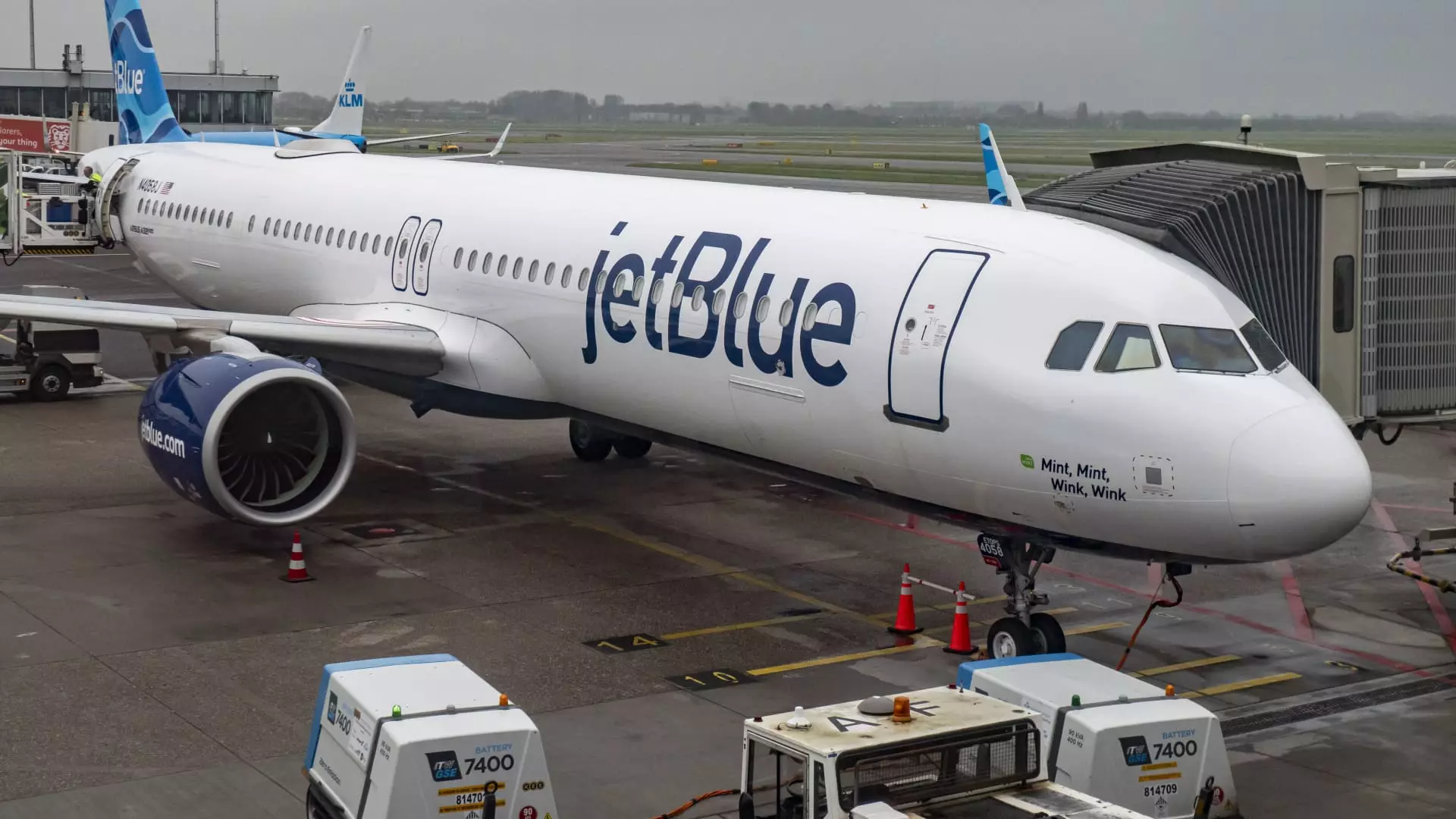In a recent move aimed at realigning its operations for better financial performance, JetBlue Airways has announced significant alterations to its flight schedule and route offerings. This decision comes as part of a broader initiative to enhance profitability and streamline operations in response to an evolving market landscape. Amid rising economic pressures and shifting consumer demand post-COVID, JetBlue’s leaders are faced with the challenge of navigating an increasingly competitive aviation environment.
JetBlue’s decision to cut several unprofitable flights signals a decisive shift in its operational strategy. The airline will reduce service from key locations such as Fort Lauderdale, New York’s JFK, and Jacksonville, which illustrates a tactical retreat from less lucrative markets. The cancellation of flights to cities like Austin and Milwaukee further highlights JetBlue’s priority to focus resources on more profitable routes, particularly those that align with higher demand. Notably, the decision to end Mint business class service on Seattle routes demonstrates a significant commitment to refining product offerings and reallocating assets where they can yield the highest returns.
One of the primary factors influencing JetBlue’s route simplification is the intense competition it faces, particularly in Florida. The airline’s Vice President of Network Planning, Dave Jehn, acknowledged the ongoing challenges in Miami, where legacy carriers such as American Airlines and Delta Airlines dominate. Despite Florida being a vital market for JetBlue, the company has struggled to make its mark in the post-pandemic landscape. The strategy to cease specific unprofitable routes illustrates a pragmatic approach to minimizing losses and reallocating crew resources more effectively in response to these competitive pressures.
While JetBlue is cutting some domestic routes, it is also strategically positioning itself for potential growth by announcing upcoming new European services. This approach reflects an understanding of dynamic market forces and the necessity for adaptability. However, the decision to reduce existing services to international destinations like Paris and London poses questions about the balance between domestic consolidation and international expansion. JetBlue is clearly attempting to optimize its service offerings to ensure that aircraft equipped with Mint business class are deployed in high-demand areas, thereby appealing to affluent travelers.
JetBlue’s latest financial reports revealing better-than-expected bookings reflect a positive trend, prompting a slight rebound in share prices. Yet, ongoing challenges such as flight cancellations and equipment groundings due to engine issues from Pratt & Whitney require careful management. The airline’s current approach not only focuses on cutting back to stabilize its financial health but also looks forward to capitalizing on market opportunities as travel demand fluctuates. The commitment to customer-centric solutions, such as offering refunds or alternate flights for affected passengers, indicates JetBlue’s intention to maintain loyalty while recalibrating its service offerings.
Ultimately, JetBlue’s recent announcements make it clear that the airline is undergoing a necessary transformation intended to address financial instabilities and operational inefficiencies. By strategically trimming routes and refining service offerings, JetBlue aims to emerge as a stronger and more competitive player in the airline industry. As it embarks on this challenging journey toward sustained profitability, the effectiveness of these initiatives will play a pivotal role in shaping JetBlue’s future landscape in the airline market.

